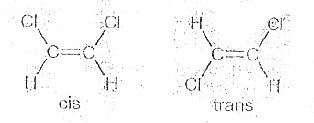Which will have a higher boiling point, Br2 or ICl, & why ?
To determine which compound has a higher boiling point between Br2 (bromine) and ICl (iodine monochloride), we need to consider several factors, including molecular mass and intermolecular forces.
1. Identify the Molecular Masses:
- The molecular mass of Br2 (bromine) is approximately 159.8 g/mol.
- The molecular mass of ICl (iodine monochloride) is approximately 162.3 g/mol.
2. Compare the Molecular Masses:
- While ICl has a slightly higher molecular mass than Br2, this alone does not determine boiling points.
3. Examine Intermolecular Forces:
- Br2 consists of diatomic bromine molecules, which interact primarily through London dispersion forces (a type of van der Waals force).
- ICl, on the other hand, is a polar molecule due to the difference in electronegativity between iodine and chlorine. This leads to dipole-dipole interactions in addition to London dispersion forces.
4. Analyze the Strength of Intermolecular Forces:
- London dispersion forces are generally weaker than dipole-dipole interactions.
- Since ICl exhibits stronger dipole-dipole interactions, it will have a higher boiling point compared to Br2.
5. Conclusion:
- Therefore, ICl has a higher boiling point than Br2 due to the presence of stronger dipole-dipole interactions in ICl compared to the weaker London dispersion forces in Br2.
Final Answer:
ICl has a higher boiling point than Br2 due to stronger dipole-dipole interactions in ICl.
- The molecular mass of Br2 (bromine) is approximately 159.8 g/mol.
- The molecular mass of ICl (iodine monochloride) is approximately 162.3 g/mol.
- While ICl has a slightly higher molecular mass than Br2, this alone does not determine boiling points.
- Br2 consists of diatomic bromine molecules, which interact primarily through London dispersion forces (a type of van der Waals force).
- ICl, on the other hand, is a polar molecule due to the difference in electronegativity between iodine and chlorine. This leads to dipole-dipole interactions in addition to London dispersion forces.
- London dispersion forces are generally weaker than dipole-dipole interactions.
- Since ICl exhibits stronger dipole-dipole interactions, it will have a higher boiling point compared to Br2.
- Therefore, ICl has a higher boiling point than Br2 due to the presence of stronger dipole-dipole interactions in ICl compared to the weaker London dispersion forces in Br2.
ICl has a higher boiling point than Br2 due to stronger dipole-dipole interactions in ICl.
Topper's Solved these Questions
- PERIODIC TABLE BOOK - MOTIONCHAPTER - PERIODIC TABLE EXERCISE - Exercise - 4 | Level-I
30 Videos
- PERIODIC TABLE BOOK - MOTIONCHAPTER - PERIODIC TABLE EXERCISE - Exercise - 4 | Level-II
22 Videos
- PERIODIC TABLE BOOK - MOTIONCHAPTER - PERIODIC TABLE EXERCISE - Exercise - 2 (Level-I)
20 Videos
- P-BLOCK ELEMENTSBOOK - MOTIONCHAPTER - P-BLOCK ELEMENTSEXERCISE - Exercise - 4 | Level-I Previous Year | JEE Main
37 Videos
- RADIOACTIVITY BOOK - MOTIONCHAPTER - RADIOACTIVITY EXERCISE - EXERCISE - 4 LEVEL - II
20 Videos
Similar Questions
Knowledge Check
The element having the higher boiling point is
APBAsCSbDBi
Which will have a higher boiling point: 1-Chloropentane or 2-Chloro-2-methylbutane?
View SolutionWhy does water have high boiling point?
View SolutionWhich will have a higher boiling point ? 1-chloroethane or 2-methyl-2-chlorobutane Give reasons:
View SolutionWhy HF has higher boiling point than HCl ?
View SolutionOut of 0.1 molal aqueous solution of glucose and 0.1 molal aqueous solution of KCl, which one will have higher boiling point and why?
View SolutionOut of ethyl bromide and ethyl chloride which has higher boiling point and why?
View SolutionOut of o-nitrophenod and p-nitrophenol, which has higher boiling point and why ?
View Solution


